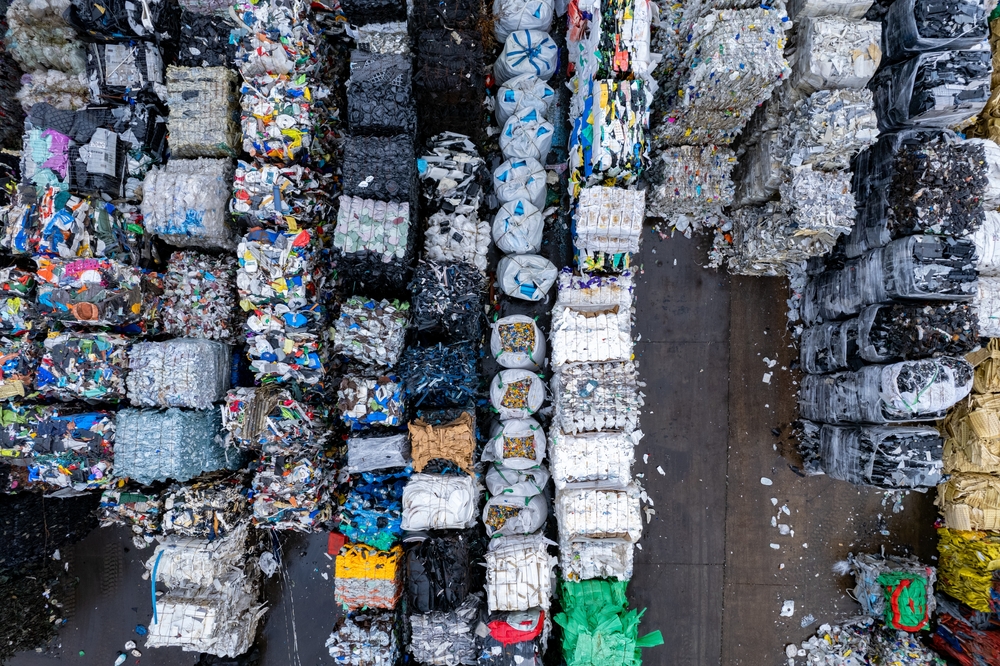Yesterday (7 November), the cross-party environment, food and rural affairs (EFRA) committee published a report calling for a ban on the export of all plastic waste from the UK by 2027 (see letsrecycle.com story).
The committee also wants the government to “step up” the enforcement of existing rules to prevent criminal gangs illegally exporting and dumping UK-produced waste.
While several campaigners welcomed the call, Dr Simon Ellin, chief executive of the Recycling Association, the trade association for the paper recycling sector and other UK recycling companies, says banning plastic exports to solve waste crime would be like “trying to crack a nut with a sledgehammer”.
A ban would penalise legitimate exporters while doing nothing to prevent illegal operators, Dr Ellin says.
Despite his opposition to a ban, Dr Ellin welcomes the EFRA committee calling for more digital waste tracking and for the Environment Agency to use more of the charges it collects from the waste industry to support its enforcement activities.
“We do not need the blunt instrument of an export ban to raise quality,” he said. “Instead, a combination of extended producer responsibility, more funding to tackle waste crime, a focus on those gangs who illegally export, and digital waste tracking will do the job. Don’t penalise those who legitimately export for the crimes of those that do it illegally.”
Turkey
The EFRA report says the UK exports around 60% of the more than 2.5 million tonnes of plastic packaging waste it creates, with the main destination being Turkey.

Dr Ellin claims the committee used data from 2020, “but much has changed since then.” “With the tough Basel regulations and UK law, it is already very difficult to export plastics unless they are high quality materials ready for recycling,” Dr Ellin said.
“In addition, countries such as Turkey, which was highlighted by the EFRA committee, have also brought in tough import laws on plastics. Indeed, many of the recycling facilities in Turkey are as good as or sometimes better than those in the UK.
“Those who are exporting plastics illegally are bypassing these laws and are not going to be deterred by a ban on legitimate operators.”
Dr Ellin says only 2% of exports now go to non-OECD countries since the introduction of new Basel Convention rules and of many Asian countries’ bans and restrictions on imports.
Those who are exporting plastics illegally are not going to be deterred by a ban
- Simon Ellin, Recycling Association
The trade to Turkey and other EU nations has helped to maintain competition and ensured that UK reprocessors work under a “free and fair” market, Dr Ellin says.
‘Waste imperialism’
By contrast, global campaign organisation A Plastic Planet welcomed the EFRA committee’s calls for a ban, describing exporting plastic waste for recycling as “waste imperialism”.
Sian Sutherland, A Plastic Planet’s co-founder, said: “We need to stop believing in the fairytale of recycling being the silver bullet to the plastic crisis.
“If it were, surely the big polluters – Coca-Cola, P&G, Unilever and others – would have built their own recycled plastic supply chain years ago.
“There is nothing circular about recycling plastic, completely proven by the fact we continue to export millions of tonnes of our plastic guilt.”
Infrastructure
Elsewhere, the EFRA committee report also called on the government to “unlock” private investment in domestic plastic reprocessing infrastructure.

In response to the report, waste management company Viridor said the UK’s current lack of sufficient plastic recycling and reprocessing infrastructure would grow to one million tonnes a year for sorting and more than 500,000 tonnes for reprocessing by 2035.
Viridor commissioned consultancy Anthesis to look at the waste infrastructure needed in the UK and found recycling and reprocessing all the plastic waste arising in the country represents a £1 billion investment opportunity to build new plastics sorting and reprocessing facilities (see letsrecycle.com story).
However, Anthesis highlighted a number of risks undermining the investment case for new facilities, including price volatility in markets for recycled plastics and the current short-term contracts for recyclate.
Currently, contracts in the sector last just three to five years on average, Viridor says, when they need to last at least 10 years.
Dr Tim Rotheray, Viridor’s ESG director, said: “Every week householders put out their recycling and rightly expect for it to be dealt with in the UK. Britain currently exports about half the plastic collected for recycling and investment and jobs go overseas.
“Investment in domestic recycling infrastructure is essential to ensure a ban on exports delivers both jobs and environmental improvement.”










Subscribe for free